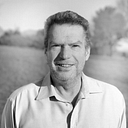Perseverance in the face of failure
“Perseverance is the hard work you do after you get tired of doing the hard work you already did” (Newt Gingrich)
Failure and fatigue are characteristic of the lives of everyone. Life is not “plain sailing” — yes, there are successes and great moments of joy, satisfaction, and happiness, but these are often fleeting, temporary, and sometimes hard to find. Most people find that they have to grind out success, there being processes that they have to follow laboriously day after day until success is achieved. Perseverance gets people though both hardship and drudgery. It requires a forward-looking attitude — focusing on future possibilities, not behind at past failures — as well as the ability to ignore those that criticise or pull you down.
Music had been George Frederick Handel’s life ever since his father had taken him to the court of Duke Johann Adolf at Weissenfels. His father wanted him to be a lawyer. Whilst his father was doing business in the court, Handel, bored, wandered into the palace chapel and began improvising on the organ. The duke came up behind him and asked: “Who is this gifted child?” The father was summoned, and he was told that it would be a crime to make such a prodigy a lawyer.
Handel learnt quickly and, in his teens, left for Italy where he mastered the skill of composing opera. His first opera, Rinaldo, was performed for a surprising fifteen consecutive nights at the new Haymarket Theatre. It was a success which he built on over the next years. He moved to London and started getting paid by the royalty and thousands of pounds were invested into his opera company, the Royal Academy of Music.
Those were the glory days, but by the mid-1720s, Handel’s fortunes began fading as audiences dwindled. He, however, kept on composing and doggedly produced his operas. In 1737, stress and overwork brought on an attack of the palsy, which removed the use of four fingers of his right hand. A very despondent Handel left London to find a cure at the famous hot springs of Aachen in Germany. He had not been there long when, one afternoon, he left the baths, dressed, and went to the abbey church. The nuns couldn’t find him until they heard a glorious burst of the most beautiful music issuing from the abbey organ. They ran to the abbey and there was Handel, his health unaccountably restored, improvising happily.
Although in debt and not in public favour, Handel wondered if he should give up the stage altogether. One morning, a servant brought him a wad of papers. It was a text put together by one of Handel’s wealthy admirers, a part-time poet named Charles Jennens. Jennens had been trying for years to interest Handel in setting his words to music. Handel surveyed the text. Like Jennens’ earlier efforts, its plot was taken from the Bible, but this was different — the text actually was the Bible. Handel was deeply inspired and, invited by the Lord Lieutenant of Ireland to present a work for charity, Handel got to work and started composing. He started the Messiah on the 22 nd of August and completed the oratorio in twenty-three days. At the performance in Dublin, the oratorio moved people to tears. The next performance was so enthusiastically attended that panes of glass were removed to keep the hall from overheating.
The London premiere was marked by those who preached against the Messiah (was the Bible’s text to be sung by actors for mere entertainment?) and some zealots even hired thugs to beat people who went to see Handel’s works. Handel ignored his naysayers and stubbornly clung to his beloved Messiah and London audiences began to flock to his performances. When King George II hear the oratorio for the first time, he could not contain his enthusiasm. When the trumpets rang out in the great “Hallelujah” chorus, he rose to his feet, followed by the whole audience. To this day, audiences stand when the chorus is sung. Handel persevered. Even when going blind he still played the organ and composed. Seventeen years to the day after the Dublin premiere, Handel died in the early morning hours.
It is easy to throw in the towel, particularly in the face of failure, but giving up on dreams, talents, and giftedness gets you nowhere. Although a recognition of past failures is helpful to learn, our eyes should not be fixed on the past. Perseverance requires us to face forwards. As Richard L Evans (Tonic for Our Times) so aptly puts it: “Those who gaze too much upon the past, who think too much about what might have been, are running something of the same risk as the driver who keeps his eyes too much upon his rear-view mirror and is inattentive to the road ahead. Experience is a great teacher; it is the road we have been over. But the wrecks in the rear aren’t the ones we are now trying to avoid. It’s the curves ahead that count now.”
We all need to persevere in the face of failure. Grinding out a path to success is no mean feat — it requires grit and focus to achieve the seemingly impossible.
Originally published at https://www.stretchforgrowth.com on May 7, 2023.
